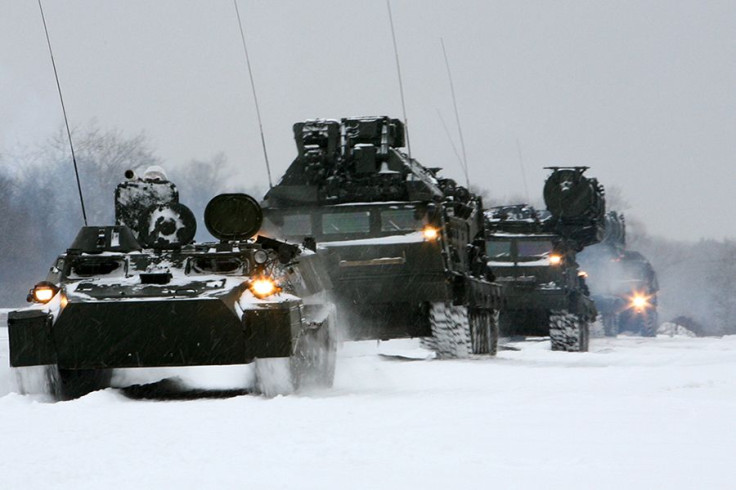NATO Accuses Russia Of Continuing To Send Weapons To Ukraine After Debaltseve Falls

The Ukrainian military has withdrawn from Debaltseve early Wednesday morning, leaving the strategically important railway junction to the pro-Russian separatists encircling it, and ending the last pocket of Ukrainian resistance between the self-proclaimed rebel republics of Donetsk and Luhansk. Yet, NATO says that despite the ceasefire and the Ukrainian withdrawal, Russia is still supplying the rebels with weapons. NATO Secretary General Jens Stoltenberg has accused Russia of continuing to transport heavy weapons into Ukraine.
Stoltenberg, who made the comments while on a visit to Latvia, has regularly accused Russia of interfering in the East Ukraine war.
"Russian forces, artillery and air defense units as well as command and control elements are still active in Ukraine," Stoltenberg said after talks with Latvian President Andris Berzins. "Russia has supported the separatists with forces, training and advanced weapons and there has been a steady buildup of tanks and armored vehicles across the border from Russia to Ukraine."
Fighting had largely stopped throughout East Ukraine since a ceasefire came into force at midnight on Feb. 15, but intensified in Debaltseve as both sides refused to back down.
The city’s train routes and highways into the rebel-held regions of Luhansk and Donetsk give it key strategic value that Russian-backed rebels are intent on controlling. After a month of fighting, Ukrainian troops were overwhelmed, and Ukrainian president Petro Poroshenko ordered the 8,000 to 10,000 soldiers trapped in the city to begin withdrawing.
The 10-month-long conflict in Ukraine has killed 5,500 people so far.
The Latvian president, whose country shares a border with Russia, said that safety and security issues were at the top of the Baltic and European agenda. "We are strengthening the National Guard, law enforcement institutions, Border Guards, and will take other measures that will significantly increase Latvian external and internal security," he said.
Latvia’s plan to strengthen its defenses comes at the same time as Poland commences a military overhaul, pledging $42 billion over 10 years.
© Copyright IBTimes 2025. All rights reserved.






















